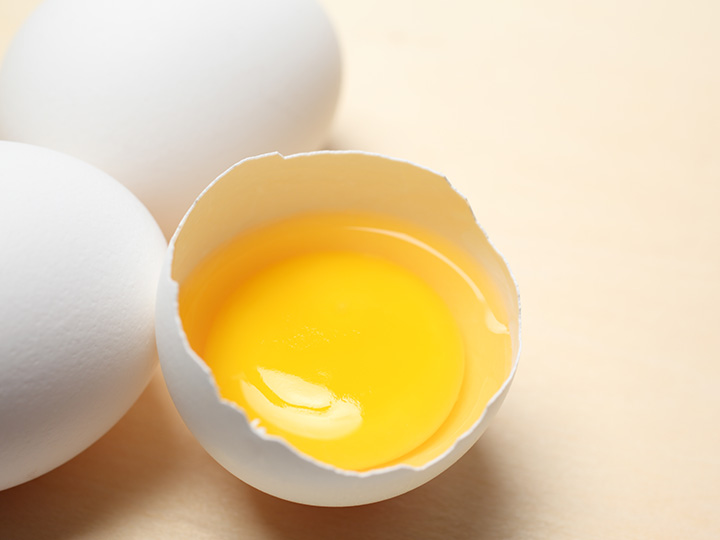Protein in the Diet

The average person should consume about 25% of their calories from proteins throughout the day. This of course changes depending on an individual's needs such as if this person is training to put on muscle for sports or a competition, a woman who is pregnant or nursing, etc. This information should only be used as a guide and one should consult their physician or a certified nutritionist.
Where to find the best proteins
As stated in the, “What is Protein?” article, not all proteins are equal. To get the most out of protein, complete protein chains must be formed. Complete protein chains appear in many foods but very few have them in fairly equal, usable proportions of the essential amino acids required. Eggs have long been viewed as nature's perfect protein and this still holds true today. One egg contains about 6g of protein, 3g in the yolk and 3g in the white of the egg. Keep in mind that the yolk has a large of amount of cholesterol but with that come some vitamins as well. The average person should be able to handle one egg yolk a day and remain healthy with proper diet and exercise. Another preferred method is the egg white sandwich: two slices of whole wheat bread and two-three egg whites give you a nice powerful way to start the day.
Another naturally occurring food that has all the essential amino acids in fairly equal amounts is quinoa. This is a seed that can be processed into many forms including flakes (like oatmeal) and pasta. What makes quinoa so great is that not only do you get the complete protein but you also get much needed dietary fiber and the small amount of fat it contains is mostly of the polyunsaturated variety (the best kind of fat!). For every serving of quinoa, depending on the form you are eating it in; it can provide around 4-6g of protein.
The downside to the perfect protein foods is that the pure grams of protein consumed is often in small amounts and can't really compare to the power of a combination dish. A combination dish is taking two or more foods and consuming them at the same time to form complete protein chains. A great example of this is chicken and brown rice. The brown rice helps fill in specific proteins the chicken is lacking in to form large quantities of complete protein chains.
Protein supplements are the engineered solution to complete protein chains. They contain all necessary proteins and in huge quantities. While loading up on all this protein is great, one must always consider the other nutritional aspects of the supplements such as fat quantity (some protein bars are over 300 calories mostly from fat!). It is also important to drink copious amounts of water to aid in the digestion of this much protein.
Where the worst kinds of protein are
As stated earlier, all proteins are not created equal and while some foods may have fair amounts of protein, they are sometimes offset by high calories and large fat quantities. High fat meats like bacon, hot dogs, and sausage are quite high in fat and the quality of protein is low. Fortunately, most foods like this can be substituted for healthier alternatives. Example: instead of pork sausage, try turkey sausage.
Cheese should also be taken in moderation. While it offers great benefits of calcium and protein, the fat content is quite high. A single slice of cheese will add an additional 100 calories to any meal on average. Also, a general rule of thumb is, the softer the cheese, the higher the fat content.
Enriched white breads can also be deceiving. While they do contain protein, it is of low quality and the white bread does not have dietary fiber the body needs to stay regular.
Protein supplements while very good can also be very bad. As stated above, these supplements can often contain high amounts of fat and require a great deal of water to properly digest. Always check the nutritional label first before eating.
Vegetarians and protein
Vegetarians are in a constant battle to find enough protein without the consumption of meat. For omnivores, pairing a meat with a non-meat dish to form a complete protein chain is simple. This becomes a bit trickier for vegetarians. High protein meat alternatives are tofu and textured vegetable product (TVP). Tofu will mimic the smells/tastes of the foods it is cooked with. TVP can be used to replace ground beef in most cases and takes seasoning quite nicely.
Other high protein alternatives for vegetarians are nuts, legumes (beans), and whole grain wheat products.




